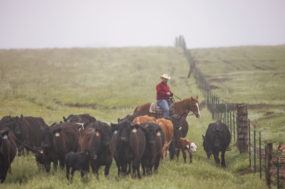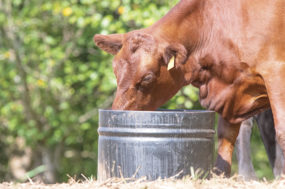A group of Canadian researchers developed the vaccine in 2008. It has been approved for use in that country, but has not been widely used because it costs farmers $6 a head to vaccine their cows, according to a report by Helen Branswell in The Hamilton (Ontario) Spectator. The study was published in the journal Proceeding of the National Academy of Sciences.
E. coli 0157 is a dangerous bacteria that can be fatal to humans. Survivors of the infection often are left with kidney damage, and it especially is dangerous to children who can become afflicted with acute kidney failure.
Ironically, the vaccine does not protect cattle from the bacteria, but instead the people who eat their meat. Infections in people also arise from a variety of other sources, according to the study, including water supplies, person-to-person transmission, and direct contact with livestock feces.
Vaccinations can effectively reduce the frequency of shedding in cattle – a process that drives spillover of the bacteria into humans, authors of the study explain.
A problem, besides the cost per head of cattle, is the limited availability of the vaccine. Two vaccines currently are available – the one in Canada, and two in the U.S., "where restricted licenses permit only limited use,” the study reads.
“The delay in fully licensing these vaccines highlights two challenges to control planning that are posed by zoonotic infections. First, there are conflicting responsibilities of the medical and veterinary agencies. …Second, controls applied in animals are not easily tested against the key outcome — the reduction in human illnesses — and this lack of data on impact hampers effective decision-making.”
Still, the authors conclude their study by explaining that the vaccination of cattle “could be an especially effective public health control against a serious disease.”
The topic has been getting more media attention in Canada, which could encourage more farmers to purchase the vaccine. ![]()
—Summarized by PC staff from cited sources







